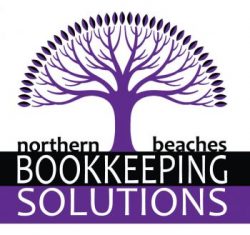Top 10 Small Business Tax Deductions You Shouldn’t Miss
Tax time is an opportunity for small businesses to maximise deductions and reduce their tax liability. By claiming eligible expenses, you can significantly decrease your taxable income and keep more money in your business. Here are the top 10 small business tax deductions in Australia that you shouldn’t miss.
1. Office Expenses
Office expenses are one of the most common tax deductions for small businesses. This includes the cost of:
- Office rent or lease payments
- Utilities such as electricity, water, and internet
- Office furniture and equipment (e.g., desks, chairs, computers)
- Stationery and office supplies
Ensure you keep receipts and invoices to substantiate these expenses when lodging your tax return.
2. Vehicle and Travel Expenses
If you use a vehicle for business purposes, you may be able to claim deductions for:
- Fuel and oil costs
- Vehicle maintenance and repairs
- Insurance premiums
- Registration fees
- Parking and tolls
To claim vehicle expenses, you must maintain a detailed logbook that records business-related travel and expenses. The ATO allows you to claim either the cents-per-kilometre method or the logbook method, depending on your circumstances.
3. Marketing and Advertising Costs
Marketing and advertising expenses are fully deductible if they are directly related to generating business income. This includes costs such as:
- Social media ads
- Google Ads and PPC campaigns
- Website development and hosting fees
- Business cards and promotional materials
4. Professional Services and Legal Fees
Fees paid to accountants, bookkeepers, and legal professionals are tax-deductible. These include:
- Tax preparation and lodgement fees
- Legal advice related to business operations
- Consulting fees for financial planning and business advice
5. Employee Wages and Superannuation
Wages paid to employees and superannuation contributions are fully deductible. Ensure that superannuation contributions are made by the quarterly due dates to claim the deduction in the financial year they are paid.
6. Insurance Premiums
Insurance premiums for business-related policies are tax-deductible. These may include:
- Public liability insurance
- Professional indemnity insurance
- Workers’ compensation insurance
- Business vehicle insurance
7. Software and Technology Expenses
Costs associated with purchasing or subscribing to business software are deductible, including:
- Accounting software (e.g., Xero)
- Project management tools (e.g., Asana, Monday.com)
- CRM software
- Data security and antivirus software
8. Training and Education Expenses
If you or your employees undertake training or courses related to your business, the expenses may be deductible. Eligible training costs include:
- Course fees and tuition
- Training materials and textbooks
- Professional development workshops
9. Home Office Expenses
If you run your business from home, you can claim a portion of your home office expenses. This includes:
- Mortgage interest or rent payments
- Utilities (electricity, water, internet)
- Office equipment and supplies
To claim these expenses, you must calculate the percentage of your home used for business purposes and maintain accurate records.
10. Bad Debts
If a client fails to pay an invoice and the debt is considered uncollectible, you can write off the amount as a bad debt and claim it as a deduction. Ensure you document all efforts made to recover the debt before claiming the deduction.
Frequently Asked Questions (FAQs)
Can I claim vehicle expenses without a logbook?
You can use the cents-per-kilometre method for claiming vehicle expenses without a logbook. However, if you choose the logbook method, a detailed logbook must be maintained for at least 12 continuous weeks.
Are home office expenses fully deductible?
Home office expenses are only deductible for the portion of your home used for business purposes. Keep accurate records and calculate the percentage of space used to claim this deduction.
What documentation do I need to claim deductions?
Keep receipts, invoices, bank statements, and any other relevant records for all claimed expenses. The ATO requires these documents to substantiate claims during tax time.
Conclusion
Maximising tax deductions can significantly reduce your business’s tax liability and improve cash flow. By keeping accurate records, understanding eligible expenses, and consulting with a qualified bookkeeper, you can effectively manage your tax obligations and keep more money in your business. For expert bookkeeping support and tax planning advice, contact Northern Beaches Bookkeeping Solutions.
